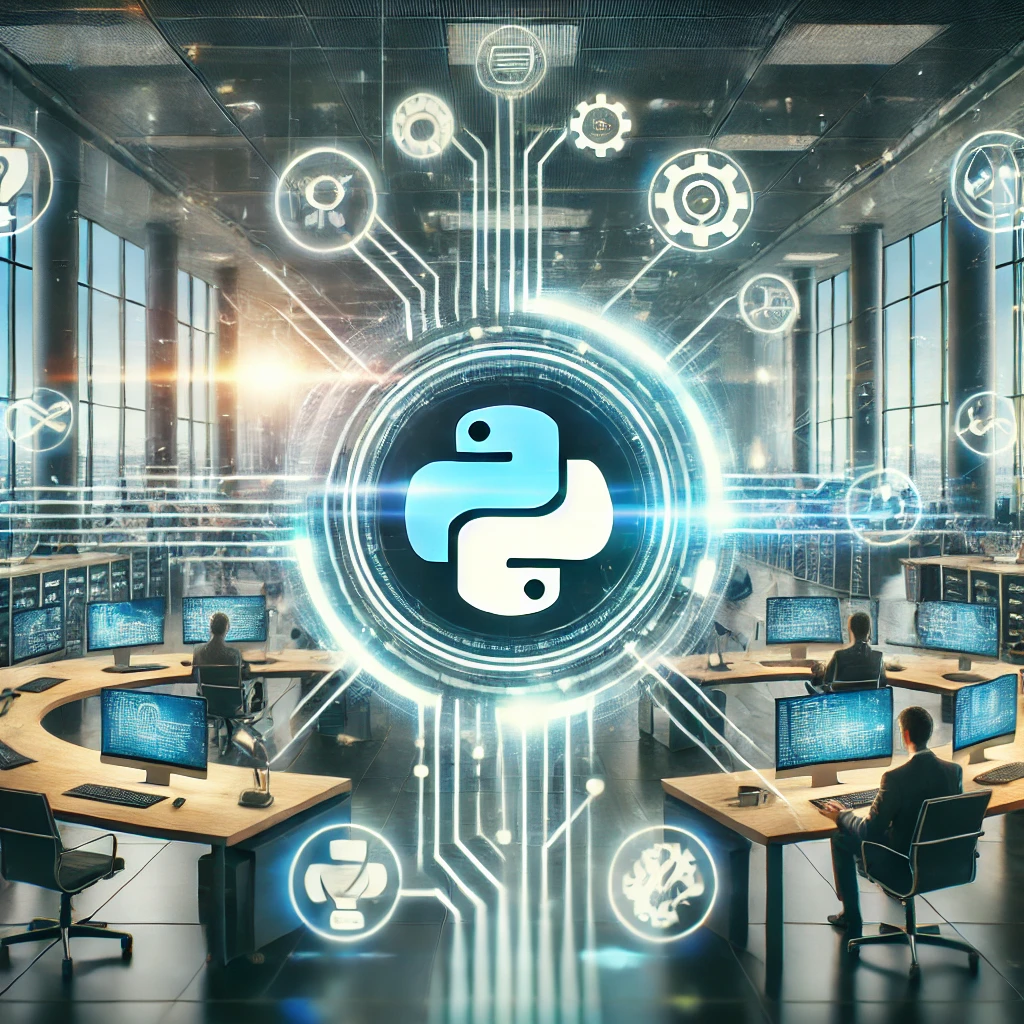Explore how custom Python applications can transform your business
Custom Python applications are increasingly recognized as powerful tools for driving business transformation. In 2023, over 75% of companies reported using Python for data analysis, automation, or application development, underscoring the language’s integral role in enhancing operational efficiency and fostering innovation.
Why Tailored Python Applications are the Future of Business Innovation
In the rapidly evolving tech landscape, bespoke Python solutions stand out for their ability to align precisely with a company's unique processes and goals. According to a 2023 survey, 87% of businesses leveraging custom software solutions, including Python, reported a significant improvement in process efficiency and a 35% faster time to market for new products.
Python's inherent flexibility and the vast ecosystem of libraries enable businesses to tackle complex challenges with precision. For instance, companies using Python for automation have seen a 30% reduction in manual errors and a 25% increase in productivity, positioning them to outperform competitors in saturated markets.
Key Benefits of Custom Python Development for Your Business
Custom Python development offers unparalleled advantages, particularly in operational efficiency and scalability. A report from DataCamp reveals that organizations using Python for business analytics achieve up to 60% faster data processing times, allowing for more informed decision-making and agile responses to market changes.
Security is another critical benefit. Custom Python applications can be tailored to meet specific security requirements, a crucial factor as cyber threats continue to rise. With Python’s robust frameworks, businesses can implement advanced security protocols that safeguard sensitive data, reducing the risk of breaches by up to 40% compared to off-the-shelf software.

Real-World Examples of Python Customization Driving Success
Custom Python applications have driven success across various industries. A leading retailer developed a Python-based inventory management system that reduced stock wastage by 20% and improved supply chain efficiency by 15%. Similarly, a fintech startup utilized Python to build an algorithmic trading platform, achieving transaction speeds that were 25% faster than their previous system.
In healthcare, Python's role in personalized medicine is transformative. For example, a Python-based analytics platform enabled a healthcare company to analyze genetic data more effectively, resulting in personalized treatment plans that improved patient outcomes by 30%.
How to Approach Building Your Own Tailored Python Application
Developing a tailored Python application starts with a clear understanding of your business needs. Collaborate with stakeholders to define specific objectives, and choose a development partner experienced in Python. Agile methodologies, which are used by over 70% of companies, allow for iterative progress and adaptation, increasing the likelihood of a successful project outcome.
Regular testing and user feedback loops are crucial. Businesses that implement continuous testing frameworks in their Python projects report up to 50% fewer post-launch issues, ensuring a smoother deployment and better user satisfaction.
Future Trends in Python and Custom Software Development
The future of Python in custom software development looks promising, particularly in areas like AI, machine learning, and data analytics. By 2024, Python is expected to power over 60% of AI-driven projects, making it a pivotal tool for businesses looking to leverage data for strategic advantage.
With the growth of cloud computing and IoT, Python's role in creating distributed, scalable applications will continue to expand. Its ability to integrate with diverse systems and its extensive library support ensures that Python will remain at the forefront of innovation, enabling businesses to navigate and thrive in increasingly complex technological environments.


 By PYTUNITY
By PYTUNITY